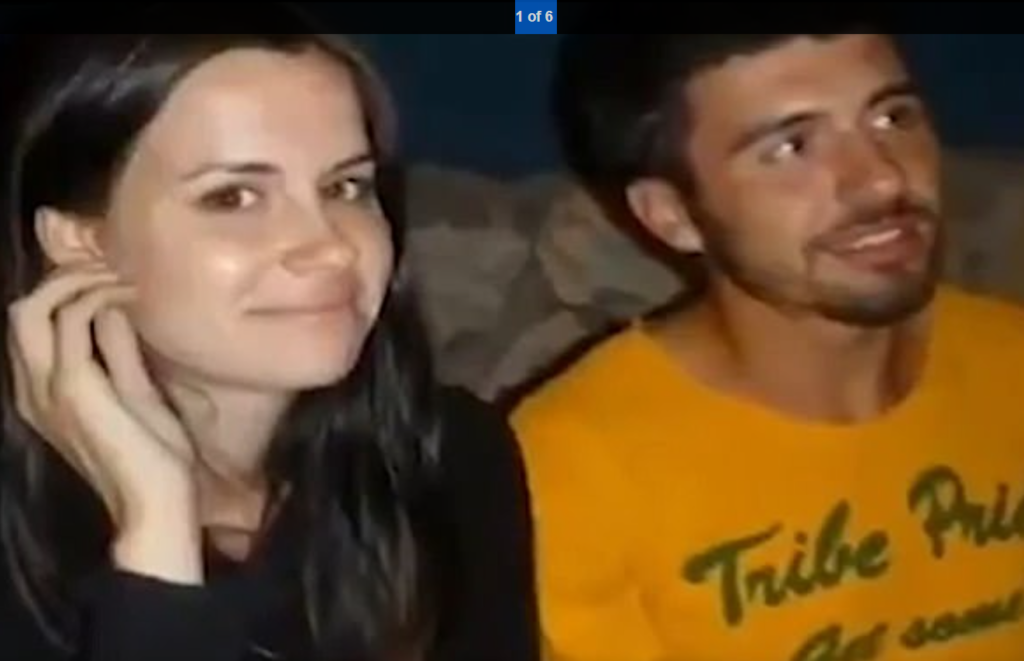March 26, 2021

In her first news interview since being released by Iran, Australian Kylie Moore-Gilbert, 33, said her Iranian interrogators focused on trying to recruit her to spy for the Islamic Republic.
Kylie spent 804 days in Evin prison after being arrested as she was at the airport trying to leave Iran in 2018.
“I knew the reason that they didn’t engage in any meaningful negotiations with the Australians [to release her] was because they wanted to recruit me, they wanted me to work for them as a spy,” she told Sky News.
“[They said] if I co-operated with them and agreed to become a spy for them, they would free me I could win my freedom.”
Dr. Moore-Gilbert was eventually released in exchange for three Iranian prisoners being held in Thailand on terrorism charges.
She said Iran was not interested in turning her against her own country. “They were more interested in me using my academic status as a cover story and traveling to other Middle Eastern countries and perhaps European countries, perhaps America, and collecting information for them there,” she said.
She said she spent seven months living in an “extreme solitary confinement room…. The first room I was put in … [was] designed to break you. It’s psychological torture. You go completely insane,” she said.
“It’s a two-by-two-meter [six-foot by six-foot] box. There is no toilet, there is no television. There is nothing whatsoever other than a phone on the wall for calling the guards.”
She described moments of temporary comfort when she would hear birds chirping outside, or see a sliver of daylight through a crack in the cell wall. Other than that, she said, there was no real way of telling the time because the lights were kept on 24/7.
She lay on an “old, dirty, stained” carpet and was given three thin blankets that other prisoners had used. “They were kind of military blankets full of other people’s hairs, full of god-knows what; bits of skin, bits of rubbish. I had to use one as a pillow, one as a mattress and one to cover myself so I wouldn’t be cold yet, I was still cold.’
She said she experienced a “prolonged anxiety or panic attack” during her captivity and was “flipping out” after two weeks.
She said the Pasdaran stopped interrogating her every day only towards the end of her imprisonment, meaning she then had to entertain herself for days on end, with nothing to do.
She was enraged by the way she was treated and that rage woke up her emotional side again. “I drew strength from my anger and indignation at what had happened to me and became stubborn and started to fight back and started to break the rules because I felt I don’t deserve this. Who are these people to do this to me?”
Moore-Gilbert said she once attempted to escape. “One day I was just, like, ‘You know what? I’m going to do it. I have nothing to lose’.
“There were spikes on part of the wall, so I just took some socks with me and put them over my hands and then grabbed onto them, hoping they weren’t too sharp.”
Once on the roof of the prison, Moore-Gilbert said she could have scaled down the walls and made a run for a nearby town. However, she said she decided not to proceed as she was in a prison uniform, didn’t speak Farsi and feared the consequences of being caught.
The nightmare began when an informant in Tehran reported Dr. Moore-Gilbert as suspicious, partly because her husband, Ruslan Hodorov, was a Russian-Israeli. She said she knows the identity of the informant, but wouldn’t give it in the interview.
She was tried and sentenced to 10 years in prison for espionage, only to be freed after Nick Warner, the head of Australia’s intelligence service, successfully negotiated the prisoner swap for her freedom.
Meanwhile, back in Melbourne, her husband allegedly began an affair with her PhD supervisor, Dr. Kylie Baxter, who, like Dr. Moore-Gilbert, is a Middle East specialist at the University of Melbourne.
Dr. Moore-Gilbert only learned of the alleged infidelity two days after she flew back to Melbourne last November. She is said to be divorcing her husband following her discovery of the alleged affair, but did not discuss that in the interview.
